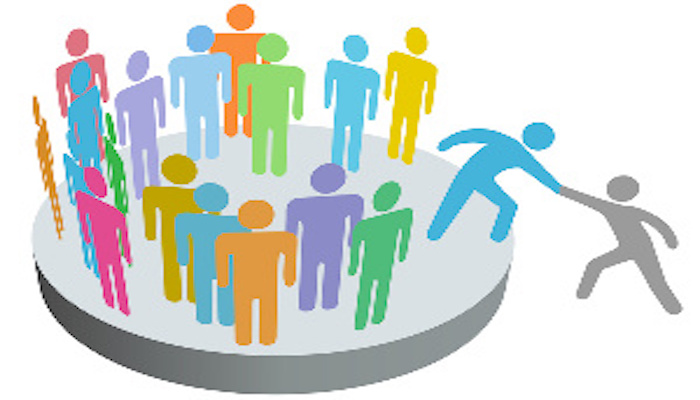Is EAP in your Management Toolkit? (The Guardian 12/04/2016)

A recent study conducted by Morgan Philip and Mazars was unveiled during the 2016 edition of the African CEO Forum 2016, which brought together 800 attendees, including over 500 CEOs from all four corners of the continent, 100 bankers and financiers and 200 prominent African and international figures. A quantitative survey conducted from January to March, 2016 highlighted that 41% of the CEOs identified HR as the most important element for a company’s continued growth.
So the question is how do companies nurture their Human Resources so critical to business growth and success? Successful businesses have found that Employee Assistance Programs (EAP) can and do help employees overcome problems that affect their jobs, their lives and their work environment.
An EAP helps employee deal with issues that might adversely impact the employee’s health and wellness, or work performance. EAPs provide a referral option when managers and Human Resources team are helping an employee deal with life and work issues that are beyond the training and scope of these workplace helpers.
What is an EAP?
Troubled employees do not leave their personal problems at home. They bring them to work, where they appear as tardiness, irritability, missed deadlines and appointments, accidents and lack of job interests. When these issues are going on in an employee’s life, the workplace is infected with problems such as – mistakes are made, productivity goes downhill, tempers flare and disagreements multiply – all of which has adverse effects on co-workers and contributes to a toxic work environment and reduced productivity.
The primary goal of an EAP is to ensure the mental and emotional health of employees so that they can consistently contribute to the growth of the company. EAPs most frequently assist employees to deal with issues such as alcoholism, drug abuse, mental difficulties, financial problems, emotional problems, grief, parenting challenges, marital problems, depression, anxiety, legal problems……
Why use the EAP as one of your management tools?
The aim of an EAP is to reduce the time employees take away from work and to ensure that when they are at work, it is with optimal performance and productivity. The EAP is a third party professional service provider and a resource to help :
- Provide encouragement and support to employees during difficult situations
- Address seemingly small issues before they become larger problems
- Show compassion and caring for your employees
- Develop a plan to deal with employee performance issues
- Save valuable time by providing solutions to a wide array of employee issues
- Intervene on personal issues that interfere with workplace functioning and productivity
- Generate a more satisfied and productive workforce
Managers and Human resources team are generally not trained in therapy or counseling to employees and EAP gives them a way to help without turning a needy employee away. EAP gives the employer an option when dealing with troubled staff members.
So why do YOU need an EAP?
Companies commonly adopt EAP in order to maintain a productive, effective and functional working environment. Here are top 3 reasons why you need an EAP
- Improved Productivity and Reduced Costs – when an employee is dealing with personal issues such as mental illness, family problems, or substance abuse, to name a few, the result is often a drop in productivity at work. EAP provides the company with prevention techniques, assessment protocols and health management services. This means that while helping your employees deal with all of life’s ups and downs, you are promoting effective company growth and development. EAPs are designed to reduce the psychological or health problems that employees experience from time to time, so as to reduce the financial impact on the company. Employees receiving counseling typically lower the usage of medical insurance and resultant medical claims.
- Increased Morale and improved Work Performance – Work performance is greatly affected by stress and personal and external problems often cause this to escalate. A professional EAP ensures that your employees are well taken care of as individuals and assists employees to resolve problems so that they can perform as part of your team – which means fewer mistakes at work and quality output. The added advantage is that the employees know that the company supports them and therefore they are committed to work and to achieving the desirable results. Companies employing the services of a professional EAP have not only experienced increase in productivity but also in quality of work.
- Third Party Professional Assistance – EAPs specialize in assessing individual employee needs and when needed, provide confidential access to professional health and counseling services. This means your employees get the help they need quickly, dealing with and averting crisis situations.
What is the Bottom-line?
The EAP is a one-stop shop for the employee who has a problem or issue and does not know where and how to seek help. EAPs help increase productivity, retain valuable, trained employees, reduce accidents, handle employee crisis intervention, provide supervisor training and consultation and address issues related to turnover and staff issues. While you have to spend some money, EAP helps to
- Reduce your health insurance costs through decreased use
- Reduce company downtime as employees miss less work
- Reduce the loss of productivity among distressed employees who make it to the job but are not fully productive
- Reduce morale problems caused by a dysfunctional employee
Reply back to bhakti@impactafya.com with your feedback and we welcome your suggestions for corporate wellness issues you’d like to see covered in our future columns.
Bhakti Shah, MPH is the Founder and Managing Director of ImpactAfya Ltd, collaborating with Workplace Options and Mayo Clinic, USA to provide Corporate Wellness and EAP Solutions in East Africa. Bhakti is also the Immediate Past President of the American Chamber of Commerce in Tanzania and the Vice Chair for Malaria and HIV/AIDS for Rotary District 9211.
